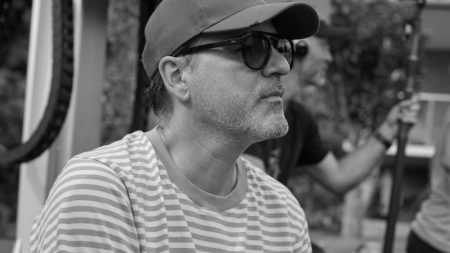The Harrowing Tales of Four Young Israeli Hostages Freed from Hamas Captivity
The parents of four young Israeli women, who were recently freed after months of captivity in Gaza, have shared heart-wrenching details of their daughters’ ordeals with the BBC. The women, including three soldiers kidnapped from the Nahal Oz army base on October 7, 2023, and a fourth abducted from the Nova music festival, endured unimaginable psychological and physical abuse during their 15 months in Hamas captivity. Their stories reveal a grim reality of starvation, intimidation, forced labor, and propaganda manipulation, as well as the resilience and hope that sustained them through the darkness.
Living in Fear and Darkness
The hostages were held in a network of underground tunnels and buildings, often moved between locations to avoid detection. Their access to basic necessities like food varied greatly, with some periods marked by near-starvation and others by slightly better conditions. Shlomi Berger, the father of 20-year-old Agam, recalled how his daughter described the unpredictability of their living conditions. "It could be a good tunnel or a very bad tunnel, a good house or a bad house," she told him. The lack of sunlight and constant danger of being in a war zone added to their suffering. Orly Gilboa, whose daughter Daniella was also kidnapped from Nahal Oz, shared that her daughter witnessed the release of male hostages who were emaciated and thin, a stark reminder of what could have been her own fate if she had been freed earlier.
The psychological toll of captivity was just as severe. The women were subjected to threats, physical abuse, and forced participation in Hamas propaganda videos. In one particularly disturbing incident, Daniella was coerced into faking her own death for a video. Her captors covered her in powder to make it appear as though she had been killed in an Israeli military strike. Her mother, Orly, recalled the anguish of seeing the video, but she clung to the hope that it was a ruse. "I just kept telling myself that it can’t be," she said. The women also witnessed physical abuse inflicted on fellow hostages, including Amit Soussana, who was assaulted in front of Agam.
Finding Strength in Small Acts of Resistance
Despite the horrors they endured, the women found ways to cope and resist their captors. Agam, a soldier known for her boldness, refused to perform tasks on the Sabbath, the Jewish day of rest. Surprisingly, her captors respected this small act of defiance. The women also drew strength from each other, sharing stories, drawing, and keeping diaries to document their experiences. Daniella, for instance, sketched a butterfly with the word "freedom" during her captivity—a symbol she now wears as a tattoo on her arm. These quiet forms of resistance and camaraderie became lifelines, helping them survive the ordeal.
The Weight of Trauma and Recovery
The physical and emotional scars of captivity are still evident. Many of the women returned home significantly lighter, having lost up to 20% of their body weight. Romi, the 24-year-old abducted from the Nova music festival, was left with an open wound that exposed bone, a grim reminder of the inadequate medical care she received. Her mother, Meirav, described the process of uncovering the full extent of her daughter’s suffering as one that would take time. The psychological wounds run deep, with the women struggles to revisit their experiences. Agam, for example, was unable to speak above a whisper during her captivity and returned home with an overwhelming urge to talk, losing her voice after days of non-stop conversation.
Hope and Reunion: A Glimmer of Light
Amid the darkness, moments of hope sustained the women. Naama Levy, one of the soldiers, recalled seeing her father on TV during her captivity. It was a fleeting glimpse, but it gave her the strength to hold on, reassuring her that she had not been forgotten. Her father, Yoni Levy, described the moment of their reunion as indescribable, a mix of relief and joy that transcended words. For Daniella, the sight of her mother after months of separation was equally powerful. These reunions marked the beginning of a long journey toward healing, as the women slowly readjusted to life in Israel.
A Call for Accountability and Justice
As the women rebuild their lives, their families and advocates are calling for a full investigation into the events surrounding their captivity and the broader conflict. The attack on Nahal Oz, which led to the kidnapping of the three soldiers, has raised questions about preparedness and security measures. Daniella had even warned her mother before the attack that "there’s going to be a war," a prescient intuition that her family now wishes had been heeded. The families also express concern for those still held in Gaza, urging continued efforts to secure their release and ensure their safety. The stories of these four women serve as a testament to resilience and a reminder of the human cost of conflict, demanding accountability and a commitment to preventing such atrocities in the future.









